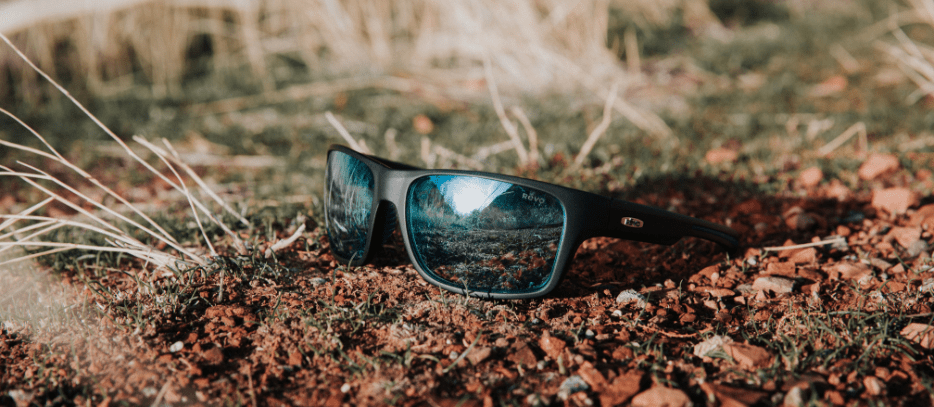The right lenses not only help you spot fish more easily, but also reduce glare and protect your eyes from harmful sunlight. By understanding how different colors interact with light and water, you can tailor your sunglasses to perform optimally in various conditions.
This guide will help you choose the best polarized lenses based on the environments you fish in most often. Each lens color is optimized for specific fishing conditions, from high-sun environments to low-light situations, as well as shallow and deep waters.
Benefits of Polarized Lenses for Fishing
-
Reduces glare: Polarized lenses block horizontal light reflected off the water, which reduces glare and helps you see beneath the surface. This is particularly beneficial when sight-fishing, as it improves visibility of fish and underwater structures.
-
Improves visibility: These lenses enhance contrast, making objects stand out more clearly, particularly in reflective or bright conditions. This allows you to track fish movements more effectively.
-
Eye protection: Polarized sunglasses protect your eyes from harmful UV rays, reducing the risk of long-term eye damage like cataracts or macular degeneration.
-
Reduces eye strain: By minimizing the need to squint or adjust your vision in bright light, polarized lenses make fishing more comfortable over extended periods.
-
Enhances safety: Clearer vision in challenging light conditions allows you to navigate water hazards like submerged rocks or debris more safely, improving overall on-water safety.
Sunglass Lens Color Guide for Fishing
Polarized lenses come in various colors, each designed to optimize performance under specific lighting and water conditions. Here's how to choose the best lens color based on your fishing environment:
|
Lens Color |
Best For |
Advantages |
Environment |
|
Gray |
Bright, sunny days |
Reduces brightness, preserves natural color |
Deep water, offshore |
|
Brown/Amber |
Versatile, sunny or cloudy conditions |
Enhances contrast and depth perception |
Shallow water, rivers, flats |
|
Green (Mirror) |
High sun exposure |
Balanced contrast, natural color visibility |
Inshore flats, shallow waters |
|
Yellow/Sunrise |
Cloudy, low-light conditions |
Enhances brightness, improves contrast |
Early morning, overcast, late afternoon |
|
Copper |
Mixed lighting conditions |
Strong contrast in green/blue environments |
Freshwater, inshore, flats |
What Lens to Use for Different Fishing Environment
-
Green (Mirror): Ideal for high sun exposure and flats fishing. Green lenses balance contrast and preserve natural color, making them a great choice for shallow, clear waters.
-
Bronze (Mirror): Versatile for everyday use, these lenses work well in both bright and variable conditions. They’re also excellent for flats fishing, enhancing contrast without distorting colors.
-
Platinum: Best suited for bright, high-sun conditions. Platinum lenses offer the darkest tint, minimizing glare and eye strain in extremely bright environments.
Lens Colors for Different Water Lighting Conditions
-
Sunny Days: For bright, sunny days, opt for Gray, Brown, or Green/Gray lenses. These colors reduce overall brightness and minimize harsh glare while maintaining natural color tones.
-
Cloudy or Low-Light Conditions: Yellow or Sunrise (Mirror) lenses are perfect for overcast days or low-light conditions, as they brighten your surroundings and enhance contrast in dim lighting.
Specific Lens Colors For Different Water Bodies
-
Shallow Water: In shallow waters, lenses that enhance contrast like Brown, Amber, or Copper are ideal. These colors help you see fish more clearly against sandy or rocky bottoms.
-
Deep Water: For deeper waters, Gray or Gray/Green lenses are the best choice. These colors offer a darker tint, reducing the impact of surface glare and helping you spot fish in open water environments.
What Is The Best Color for Polarized Sunglasses for Fishing
The best color for polarized sunglasses depends on several factors, including water clarity, lighting conditions, and personal preference. Brown and amber lenses are the most versatile, offering excellent contrast and depth perception in both shallow and variable light conditions. Gray lenses are ideal for bright, sunny conditions, especially in open or deep water, as they reduce overall brightness without distorting natural colors. Personal preference also plays a role, as some anglers may prefer enhanced contrast, while others may prioritize maintaining true-to-life colors.
Learn more about Polarized vs Mirrored Sunglasses
Best Color Lenses for Fishing - Frequently Asked Questions
-
What color polarized lens is best for fly fishing?
Amber or copper lenses are ideal for fly fishing in shallow waters, such as streams and rivers. They enhance contrast, making it easier to spot fish in complex, fast-moving environments.
-
How do different lens colors impact color distortion?
Gray lenses offer the least amount of color distortion, maintaining a more natural view. Brown and amber lenses may slightly alter colors but enhance contrast, which is useful for spotting fish.
-
Can I use one pair of sunglasses for all fishing conditions?
While one pair can work in various conditions, it’s recommended to use different lenses for specific environments. For example, gray lenses work best in bright, deep water, while brown lenses are better for shallow, varied light environments.
-
What are the advantages of mirror vs non-mirror polarized lenses?
Mirror lenses reflect more light and reduce glare more effectively, making them ideal for extremely bright conditions. Non-mirror lenses provide a clearer, more natural view but may be less effective in intense sunlight.
-
How do water conditions affect the effectiveness of polarized lens colors?
Shallow, clear water environments benefit from amber or copper lenses due to their contrast-enhancing properties. For deeper, open waters, gray lenses work best, reducing glare and maintaining natural color perception.
Go Back to Blog Page
